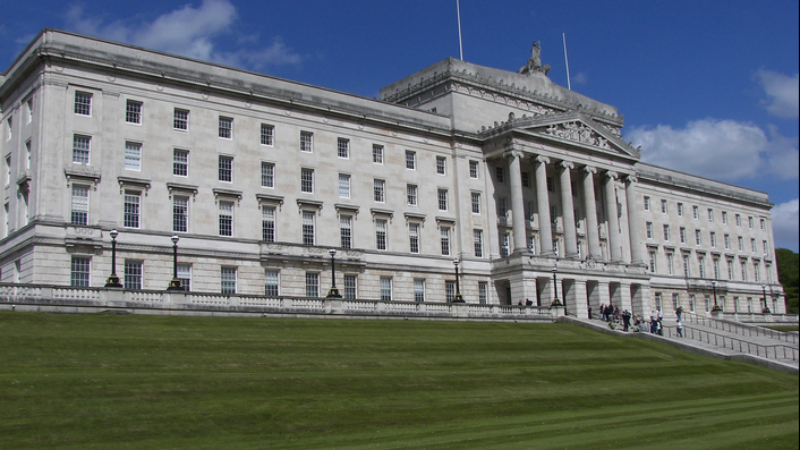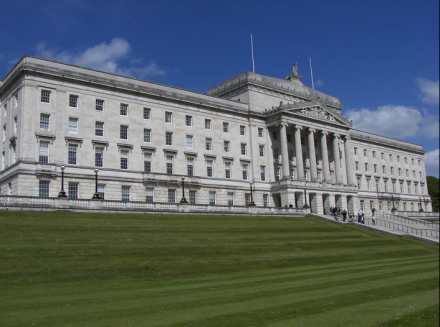

This is the speech given by Mike Gapes, MP for Ilford South, in the Commons debate on the EU withdrawal bill yesterday.
Having listened to this debate for seven hours and been in the chamber for most of it, I can say that occasionally it was like watching paint dry. I want to comment on something that the minister just said: that the government cannot accept changes that would undermine the UK internal market or businesses. That seems a little ironic on the day the prime minister has shown how strong and stable she is and when we are in such a crisis over Northern Ireland and the issues relating to the Good Friday agreement.
Sadly, Democratic Unionist party members seem to have gone AWOL; I assume that they are out discussing how to spend £1bn. They, of course, were not part of the negotiations that led to the Good Friday agreement and were not happy when we brought in the institutional frameworks established as a result of the 1998 legislation. I had the pleasure of being in Mo Mowlam’s team during those negotiations. I was a very minor person in the process—as the parliamentary private secretary to the political development minister, my good friend Paul Murphy—but it was a great achievement of our Labour government.
As Tony Blair has so eloquently put it and John Major has also said, today the Good Friday agreement is in danger. Those of us who have looked at these issues understand that the agreement has three strands. One is the internal political situation in Northern Ireland, which is clearly not going well. The assembly and executive are not functioning and the civic forum that was supposed to be established under the Good Friday agreement does not exist.
Then there is strand 2, which is the Irish dimension, the North South Ministerial Council and the implementation bodies; it is supposed to cover agriculture, education, transport, the environment, health and EU programmes. Strand 2 is going to be undermined by the decision to leave the single market and the customs union.
Then there is strand 3, which is the east-west British-Irish Council and the British-Irish intergovernmental conference. We now understand that the Irish government are right to express concerns about the position we face. I was in Dublin three weeks ago with the foreign affairs committee. We also went to County Cavan. We drove along the road that goes from one side of the border to the other, and back across, through County Monaghan. The only way anyone knows they are in Northern Ireland is that there is a building with a “Fireworks for sale” sign. Fireworks cannot be sold in the Irish Republic, but they can be bought in Northern Ireland—that is a bit ironic, but we will not go there.
The reality is that we have fields on both sides of the border, cows that move backwards and forwards, farmhouses that are divided and institutional structures such as the veterinary organisations. We have the milk that is taken from cows in the south and cows in the north, put together in the same factory, mixed together with whiskey, and comes out as Baileys, which is then marketed as an Irish whiskey derivative, and there is an all-Ireland trade arrangement on that basis. Similarly, with tourism, Northern Ireland and the Republic are promoted together globally.
We are putting all this in jeopardy—putting it all at risk. We have to understand how difficult it was to get the Good Friday agreement and how not necessarily just the reality of the economics, but the symbolism of the politics will come back, and people will have to think about their differences rather than what unites them. At the moment, there are many Irish citizens living in Northern Ireland because one can have either a British passport or an Irish passport—it does not matter. Will the European Court of Justice apply to those people living in Northern Ireland? Will they have protection even though they are living in the UK? These are interesting and complicated issues.
The mayor of London, the Welsh government and the Scottish government have all said that we need to stay in the single market and the customs union, but above all we need to listen to the voices of the people of Northern Ireland, who want us to stay in the single market and the customs union. Although they claim the contrary, Democratic Unionist party members do not speak for Northern Ireland—they speak only for one part of Northern Ireland. Northern Ireland voted to remain. Northern Ireland wants to be in the single market. Northern Ireland, collectively, wants to keep the institutions of the Good Friday agreement.
It is fundamentally important that we recognise in this bill that there are special circumstances relating to Northern Ireland. When I intervened on the minister—eventually he gave way to me—he did not respond to my point, which was that there is no specific understanding of the differences in Northern Ireland. The all-Irish Good Friday agreement—Belfast agreement—institutional framework is crucial and fundamental, and we have to preserve it and keep it. We will break up the United Kingdom and we will cause dangers and conflict again on the island of Ireland. We will damage relations with our closest neighbour and best friend. We have such a good British-Irish relationship, as we saw when her majesty the Queen went to Croke Park, and as Mary McAleese told us when she was the Irish president at the time. That is at risk, and we must not let it happen. Please, please support the continuation of the Good Friday agreement.




More from LabourList
‘After years of cuts, Labour’s local government settlement begins to put things right’
‘The Sherriff of Wild Westminster: what must change in elections bill’
‘The hope that kills you’: Reflections from the final day in Gorton and Denton